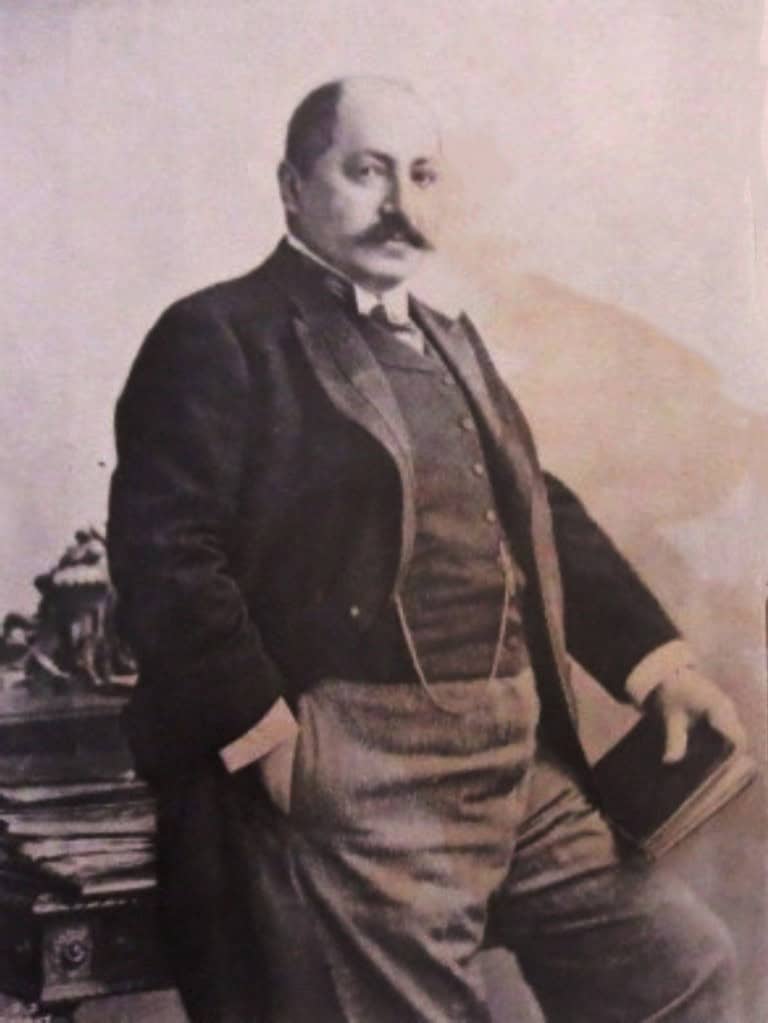Death of Grigor Khalatiants (February 8, 1912)

Grigor Khalatiants, historian and philologist, was an important name in Armenian Studies in the late 19th century and beginning of the 20th, even though some of his works have been rejected for their maximalist positions, while others have maintained their value until our days.
He was born on September 15, 1858, in Alexandropol (nowadays Gyumri). He studied at the Lazarian College of Moscow in 1868-1877 and, upon graduation, he entered medical school at the University of Moscow, but after three years, he made a complete shift to the School of History and Linguistics, graduating in 1884. After two years of postgraduate studies in Germany, he taught Armenian Studies subjects at the Lazarian College from 1886 until his death. He became head of the chair of Armenian Studies in 1890 and was dean of the College in 1897-1903.
Khalatiants participated actively in Armenian cultural life in different cities and contributed to the development of Armenian Studies in Russia. He contributed to Armenian and foreign periodicals and wrote more than 30 scholarly books in Classical and Modern Armenian, Russian, and German on Armenian history, ancient literature, philology, and ethnography. He translated the Armenian epics David of Sassoun into Russian (1881) and German (1886).
Khalatiants was particularly interested in Movses Khorenatsi’s History of the Armenians. He studied the sources and the relations between the works of Khorenatsi, Yeghishe, and Ghazar Parpetsi, falling sometimes in the trap of hypercriticism. He wrote several books on this subject, such as Ghazar Parpetsi and His Works (1883), Movses Khorenatsi and His Sources (1896), The Armenian Epic in the History of Movses Khorenatsi (1896, in Russian), and On the Newest Sources of Movses Khorenatsi (1898).
His extensive monograph The Armenian Arsacids in the History of the Armenians by Movses Khorenatsi (1903, in Russian) earned him a doctorate by the Imperial Academy of St. Petersburg. An Essay on the History of Armenia (1910, in Russian) is another valuable work, where Khalatiants composed the political and economic history of the country from ancient times until the adoption of Christianism in Armenia.
General Outlines of Armenian Popular Tales (1885, in Russian; 1886, in German) attempted to show the connection between Armenian, Slavic, and German popular tales. Khalatiants’ The Newly Found Armenian Translation of 1 and 2 Chronicles (1896) and The Book of Chronicles According to the Armenian Translation (1899) were important additions to the scholarship on the Armenian translation of the Bible. In his work Program of Armenian Ethnography and National Law Customs (1887), he showed the road to be followed by ethnographers and folklorists. He was the founding editor of the Eminian Ethnographic Collection in 1901-1911.
This prolific scholar passed away on February 8, 1912, in Tiflis (Tbilisi), where he was buried.
